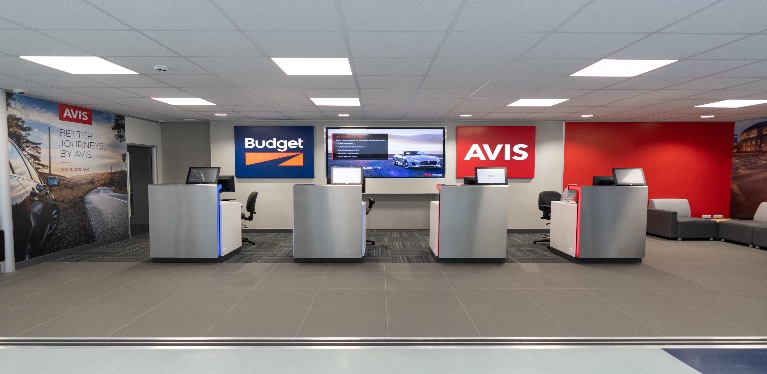Excellent News For Picking A Car Rental Site
How Can You Evaluate The Insurance Provided By The Car Rental Company?It is important to review the options and insurance coverage provided by the rental agency to ensure that you are protected and don't have to pay for unnecessary expenses. How to review insurance when renting a vehicle: Be aware of the basic coverage. Begin by understanding what the basic insurance is in your rental contract. Rental companies generally offer basic liability insurance that covers the loss of property belonging to a third party and bodily injury in the event of an accident that's your at fault. This coverage can be capped with deductibles or limitations.
Consider Additional Insurance Options. Rental companies can provide additional insurance options to protect you. There are two types of coverage that are common- Collision Damage Waiver which will lessen or eliminate the financial liability that you are responsible for damages caused to your rental vehicle, and Loss Damage Waiver which covers theft or damages to the rental.
Assess coverage limits and deductables- Examine the coverage limitations and deductibles associated with the various types of insurance. Determine the maximum insurance payout in the event of damage. Also, identify the deductible you must pay prior to when your insurance coverage starts to take effect.
Personal Insurance Policies. Find out if you have coverage on your credit card or auto insurance policy. Certain credit cards offer coverage for rental vehicles with a secondary insurance if the rental is paid for through the card. You could be covered by your own auto insurance for rental cars. However, insurance coverage depends on the policy you have.
Consider Your Risk-Tolerance making a decision on whether to purchase extra insurance, you need to consider your risk tolerance as well as your financial situation. It may be beneficial to purchase additional insurance if you are concerned is related to the risk of damage or theft. You can save money by declining the insurance provided by the rental car company, if your own coverage is sufficient.
Ask about Exclusions and Exceptions Contact the rental company about any exclusions or exceptions to the insurance coverage, such as restrictions on off-road driving, unauthorized drivers, or use of the car for commercial uses. Be sure to read the conditions and terms of the insurance policy. This will help you avoid any surprises in the event of accidents occur.
Document Damages that Exist- Prior to signing the rental agreement examine it thoroughly for any existing damage or signs of wear and wear and tear. Photographs or videos are taken to prove the damage. You will be safe from being held accountable for damages that were already in place when you returned the car.
If you carefully examine the options and insurance that the firm you are renting from, you'll be able to make informed decisions that will ensure you receive the appropriate protection during your rental while minimizing unneeded expenses. Check out the recommended rent a car hints for website tips including car rental rate, drive hire car, car rental luxury near me, best way to rent a car, fancy cars for rent, sporty car rental near me, car required for rent, rent a car luxury car, car rental prices per day, car rental rate per day and more.

How Can You Examine Your Car For Damages Or Signs That It Is Damaged?
It is important to inspect the vehicle for any signs of wear and tear prior to taking the vehicle. This will help you avoid being held responsible for any issues that may arise at the time of the time of your return. Utilize these guidelines to perform an exhaustive check.
The exterior of the vehicle for damage such as scratches, dents, and other damages.
Take extra care with the bumpers.
Check the windshields and windows for cracks, chips, or other damages.
Under the car, check for signs of leaks and damaged to the chassis.
Interior Inspection
Lift the doors to the car including the trunk.
Look for tears or stains in the seats, carpets and upholstery.
Check all adjustments to the seat, including the driver's seat to make sure they work properly.
Take a look at the dashboard, steering wheel and all controls for any damage or malfunctions.
Check the HVAC, air conditioning and ventilation systems for air conditioning, heating and ventilation.
Test all electronic features, including the audio system.
Functional Inspection
Start the car and check for warning lights or errors on the dashboard.
Test the brakes (if applicable) as well as the accelerator and clutch to ensure that they function correctly.
Test the working of your brake lights as well as the brake headlights (high beams), and turn signals by turning them all on.
Test the wiper fluid and horn, as well as the parking brake.
Note any damage that may occur:
Record any issues or damages using a rental agreement provided by the company that leases your car or via an app that you can download on your phone.
Make videos and photos of your car from a variety of angles. Be sure to focus on areas that are damaged or show evidence of wear.
Notify the area the size, extent, and nature of the damage for each scratch, dent, or other damage.
If you discover any damages or damage, contact the representative at the rental car company prior to taking the vehicle.
Report Damage
Inspect the vehicle thoroughly and notify the company representative about any damages you discover.
Request that they note any damage to their documents. Also ask for a copy of the inspection report.
To confirm the damage, you must both sign the rental contract or the inspection form.
If you follow these steps and thoroughly check the car prior to accepting it, for any signs of damage, wear and tear or other indicators, you will protect yourself and enjoy a more pleasant rental experience.

What Are The Most Important Things To Know About A Company's Policy On Fuel?
Understanding the rental company's policy on fuel policy is essential to avoid extra charges and ensure a smooth return process. Here's how to learn about the policy on fuel. Check the rental agreement Be sure to read the rental agreements provided by rental firms. The fuel policy typically appears in the contract, usually in a section that is called "Fuel Policy", or "Refueling."
Review the Terms of Service- Learn the specifics of the fuel policy. You may require pre-purchase of fuel at a specific cost or pay service fees to refuel.
Questions Rental Company Representatives. If the fuel policy contained in the rental agreement is unclear or should you have any concerns you have, be sure to contact the representatives of the rental company to clarify. Contact their customer service department via email, phone or via live chat to inquire about the fuel policy.
Full Tank Requirement - Certain rental companies require that you return the car with a full gas tank in order to avoid charges. You will have to fill the tank at a nearby station before returning your car in the event of this. The receipt of fuel proves that you have refueled your vehicle.
Certain companies permit you to buy a fuel tank for the price of a set amount prior to picking up your car. The option allows you return the car at any point and not being charged for fueling. Unused fuel may not be reimbursed.
Refueling Charges The rental firm will be charged for refueling charges if you return the car with less fuel than what you purchased and you did not buy it ahead of time. The charge is usually comprised of the cost of fuel and an additional service charge. Local gas prices can be substantially more expensive.
Understand Penalties. Be aware of all penalties and charges that are associated with the policy on fuel. This could be administrative fees in the event that you do not follow the refueling instructions. Knowing the penalties up front can help you avoid any unexpected fees.
Plan Ahead. Make sure you plan ahead for refueling your car based on your travel schedule and the guidelines for fuel at the rental company. Factor in time to locate an outlet near you and refill the tank prior to returning the vehicle to reduce the cost of refueling.
Understanding the fuel policy of your rental company and observing its regulations will help you avoid any extra costs.
